The Art of Insight: Enhancing Self-Awareness and Self-Reflection Proficiency
https://askedyourself.com/exploring-sexual-fantasies/Enhancing self-awareness and self-reflection go hand in hand. By integrating these practices, we can amplify their benefits and accelerate personal growth. When we are self-aware, we can observe our thoughts and behaviors with a critical eye, leading to more meaningful self-reflection. Similarly, self-reflection provides insights that deepen our self-awareness and allow us to make conscious choices aligned with our values and aspirations.
Understanding Self-Awareness
Self-awareness is the foundation of personal growth. It involves consciously recognizing and understanding our thoughts, emotions, and behaviors. When we are self-aware, we gain a deeper understanding of ourselves, including our strengths, weaknesses, values, and beliefs. This knowledge enables us to make more informed choices and develop healthier relationships with ourselves and others.
The Power of Self-Reflection
Self-reflection is the process of examining and contemplating our thoughts, emotions, and experiences. It allows us to gain insight into our actions and their underlying motivations. Through self-reflection, we can identify patterns, triggers, and areas for improvement. It helps us develop a deeper understanding of ourselves and fosters personal growth and self-discovery.
Developing Self-Awareness
Recognizing Thoughts and Emotions
To enhance self-awareness, we must learn to observe and acknowledge our thoughts and emotions without judgment. Taking a step back and objectively observing our inner experiences can provide valuable insights into our subconscious mind.
Practicing Mindfulness
Mindfulness is a powerful practice that cultivates self-awareness. By focusing our attention on the present moment without judgment, we can become more aware of our thoughts, emotions, and bodily sensations. Regular mindfulness exercises, such as meditation and deep breathing, can help us develop a greater sense of self-awareness.
Seeking Feedback from Others
External feedback is invaluable for gaining perspective on ourselves. Actively seeking feedback from trusted individuals, such as friends, family, or mentors, can provide valuable insights and help us uncover blind spots that may hinder our self-awareness. Constructive criticism allows us to see ourselves from different angles and make necessary adjustments.
Cultivating Self-Reflection Skills
Journaling and Expressive Writing
Writing down your thoughts, feelings, and experiences in a journal or through expressive writing can facilitate self-reflection. It allows us to externalize our internal world, making it easier to examine our thoughts and gain clarity. Regular journaling practice can deepen self-awareness and promote self-reflection.
Engaging in Meditation and Contemplation
Meditation and contemplation are powerful tools for self-reflection. By dedicating time to quiet reflection, we create a space for introspection and self-discovery. Through meditation practices such as mindfulness meditation or loving-kindness meditation, we can develop a heightened sense of self-awareness and gain valuable insights into our inner workings.
Embracing Solitude and Silence
In the hustle and bustle of daily life, finding moments of solitude and silence can be rejuvenating and conducive to self-reflection. By disconnecting from external distractions and spending time alone, we create an opportunity to listen to our inner voice, explore our thoughts and emotions, and gain a deeper understanding of ourselves.
The Benefits of Enhancing Self-Awareness and Self-Reflection
The journey of enhancing self-awareness and self-reflection brings forth numerous benefits:
- Improved Emotional Intelligence: Increased self-awareness enables us to better understand and manage our emotions, leading to healthier relationships and effective communication.
- Enhanced Decision Making: By understanding our values, strengths, and limitations, we can make decisions that align with our authentic selves and lead to greater fulfillment.
- Personal Growth and Development: Self-reflection fosters continuous learning and self-improvement, helping us break free from limiting patterns and embrace personal growth.
- Strengthened Relationships: Deepening self-awareness allows us to understand our impact on others and cultivate empathy and compassion, fostering stronger and more meaningful connections.
- Increased Resilience: Self-reflection helps us identify and address negative patterns and limiting beliefs, empowering us to navigate challenges with resilience and adaptability.
Overcoming Challenges in the Process
Enhancing self-awareness and self-reflection is not without its challenges. It requires courage, patience, and a willingness to confront uncomfortable truths. Here are two common challenges and strategies to overcome them:
- Dealing with Resistance and Denial
Acknowledging our flaws and shortcomings can be difficult, and our ego may resist self-reflection. By cultivating self-compassion, creating a safe space for exploration, and approaching self-reflection with an open mind, we can gradually overcome resistance and embrace growth.
- Managing Fear and Discomfort
Self-reflection may bring up uncomfortable emotions or confront us with painful experiences. It's essential to practice self-care and seek support when needed. Developing resilience and an understanding that discomfort is a natural part of the growth process can help us navigate these challenges.
Applying Self-Awareness and Self-Reflection in Daily Life
Integrating self-awareness and self-reflection into our daily lives can lead to transformative experiences. Here are a few ways to apply these practices:
Enhancing Relationships
By being more self-aware and reflecting on our behaviors, we can cultivate healthier and more meaningful relationships. We can communicate more effectively, show empathy and understanding, and develop stronger connections with others.
Boosting Personal Growth and Learning
Regular self-reflection allows us to identify areas for improvement and set goals aligned with our values. It encourages continuous learning, fosters personal growth, and empowers us to reach our full potential.
Making Better Decisions
Through self-awareness and self-reflection, we gain clarity on our values, priorities, and goals. This insight enables us to make more informed and conscious decisions that align with our authentic selves, leading to greater fulfillment and success.
FAQs (Frequently Asked Questions)
- What is the difference between self-awareness and self-reflection?
Self-awareness involves consciously recognizing and understanding our thoughts, emotions, and behaviors, while self-reflection is the process of examining and contemplating our inner experiences to gain insights into our actions and motivations.
- Is self-reflection the same as introspection?
While self-reflection and introspection share similarities, introspection focuses more on internal examination and self-analysis, while self-reflection encompasses a broader process of contemplation and gaining insights from one's experiences.
- How often should I engage in self-reflection?
The frequency of self-reflection can vary for individuals. It's beneficial to incorporate regular moments of self-reflection into your routine, such as journaling or dedicated quiet time, but the exact frequency depends on personal preference and availability.
- Can self-awareness and self-reflection help in professional settings?
Absolutely! Self-awareness and self-reflection are valuable skills in professional settings. They can enhance leadership abilities, improve communication skills, and promote effective decision-making.
Conclusion
Enhancing self-awareness and self-reflection is a transformative journey that opens doors to self-discovery, personal growth, and improved well-being. By dedicating time and effort to understanding ourselves, we gain valuable insights that empower us to make conscious choices, develop healthier relationships, and live a more authentic and fulfilling life.
Reference:
Goleman, D. (1995). Emotional intelligence: Why it can matter more than IQ. Bantam Books.
Kabat-Zinn, J. (1994). Wherever you go, there you are Mindfulness meditation in everyday life. Hyperion.
Brown, B. (2018). Dare to Lead: Brave Work. Tough conversations. Whole hearts. Random House.
Grant, A. M., & Berry, J. W. (2011). The necessity of others is the mother of invention: Intrinsic and prosocial motivations, perspective-taking, and creativity. Academy of Management Journal, 54(1), 73-96.
Ryan, R. M., & Deci, E. L. (2000). Self-determination theory and the facilitation of intrinsic motivation, social development, and well-being. American Psychologist, 55(1), 68-78.
These references provide valuable insights into the topics of self-awareness, self-reflection, emotional intelligence, and personal growth. They can serve as a starting point for further exploration and understanding of the subject matter.

